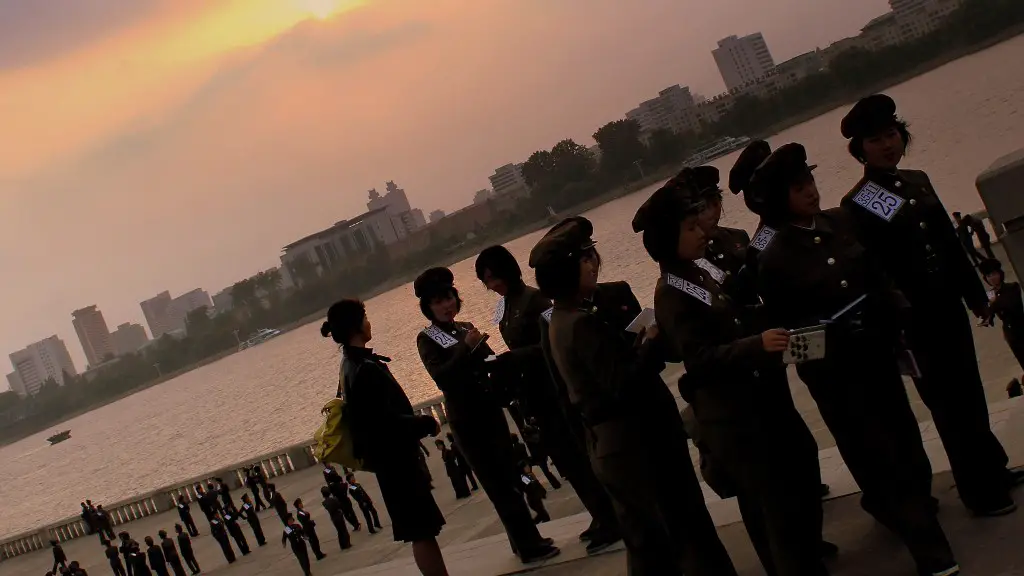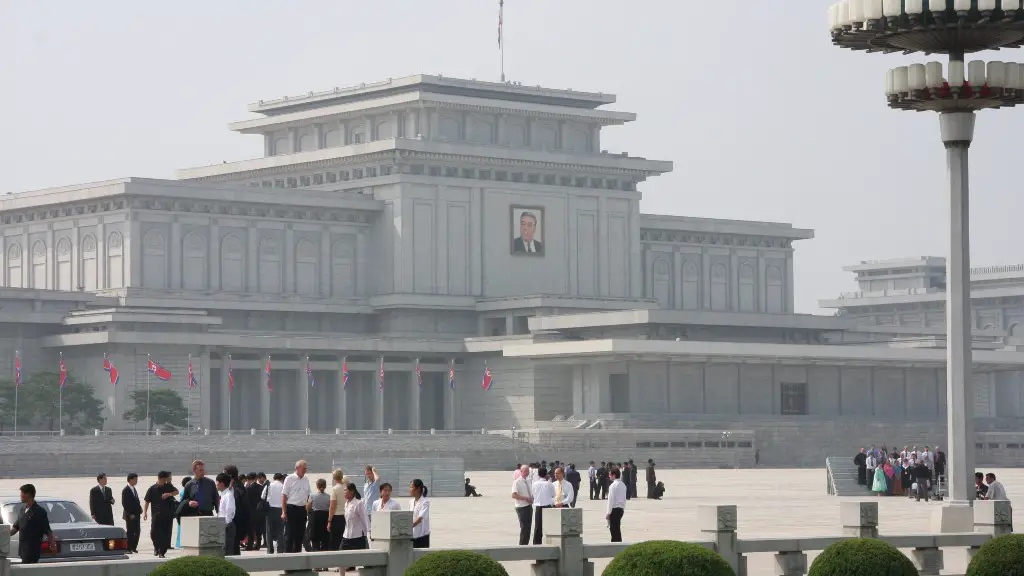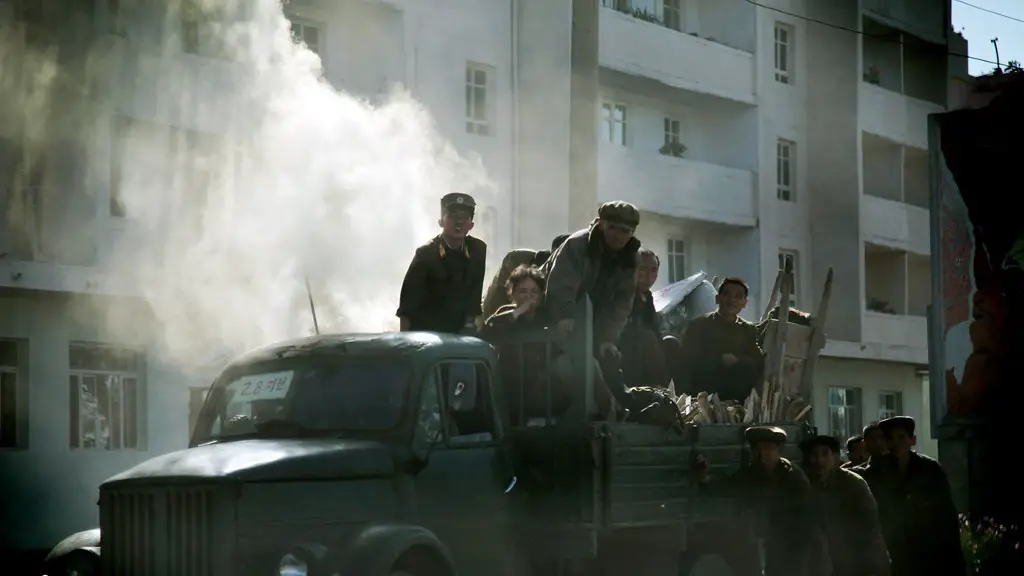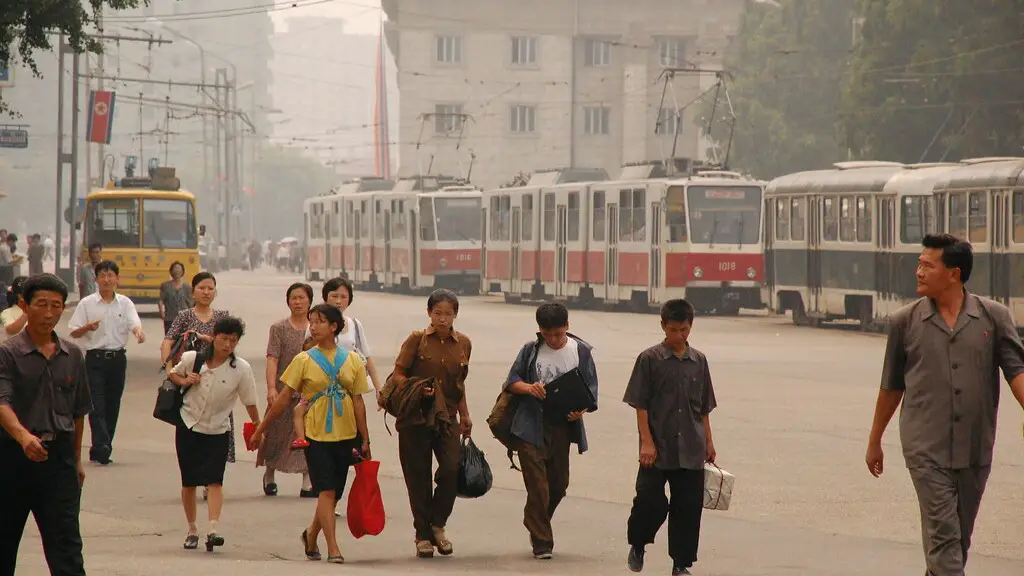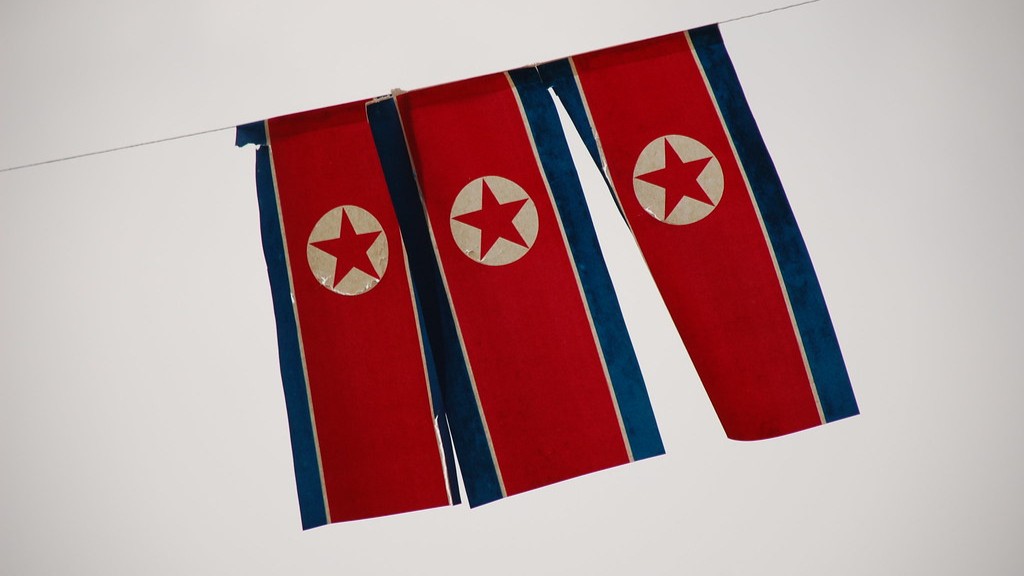Introduction:North Korea is one of the most repressive regimes in the world and one of the hardest countries to escape. It is an isolated pariah state ruled by a brutal dictator and a policy of ‘juche’, meaning self-reliance. To leave North Korea is an incredibly dangerous and difficult feat. There have been some success stories, but most have ended with survivors facing imprisonment or even execution.
Economic conditions North Korea is one of the world’s poorest countries with estimates based on United Nations (UN) data stating that more than 10 million of its 25 million people live in poverty. It has a closed economy, with trade and investments highly restricted, and a centrally planned economy. There is widespread poverty and severe food shortages. The people who live there often suffer from malnutrition and are dependent on the government for basic supplies.
Cultural beliefs The culture of North Korea is heavily influenced by their political system and ideology. People are encouraged to adhere to a certain set of beliefs and codes of conduct. They are taught to respect and revere their leaders. There is also a strong sense of nationalism and people often fear the consequences of being perceived as disloyal. These cultural beliefs make it even harder for people to escape from North Korea and make the journey to South Korea and other countries.
Political controls The government of North Korea places heavy prohibition and control measures on its citizens. People are monitored and often punished for expressing their opinions and having any contact with foreigners. The country has one of the harshest media censorship systems in the world and access to the outside world is tightly regulated. Citizens’ movement is also very restricted, making it difficult for people to leave the country undetected.
Difficult journeyEscaping from North Korea is a perilous journey that takes months and involves crossing borders illegally, while being pursued by armed guards. Many cross the heavily-monitored borders into neighbouring China, risking being arrested and repatriated. From there, they often have to travel through China and other countries to reach South Korea, or other countries that can provide asylum. People often rely on the assistance of smugglers and it can be extremely expensive and dangerous. People who do make it to South Korea are often traumatised by their experiences, and have difficulty adapting to a different culture and way of life.
§§ 1020
State Control
State control The government of North Korea is highly authoritarian and maintains a strong grip on power. The government follows a policy of ‘Songun’, meaning military first. It is highly militarised, with an estimated 5 million active and reserve personnel, and a large state security apparatus. These institutions are used to maintain control and punish dissenters. The government also relies on a network of informants who monitor their citizens and report any suspicious activity.
Informers Informers are a key element of the security apparatus in North Korea. They are recruited from all sections of society, including the military, state bureaucracy, factories, schools and universities. These informants are expected to report any suspicious activity or signs of dissent to the government. They are rewarded for their loyalty and vigilant monitoring of their neighbours and colleagues.
ConsequencesThe consequences of trying to escape North Korea are dire. Those caught trying to leave the country can face severe punishment, including imprisonment or even execution. People who make it to South Korea face difficulties adapting to their new lives, due to cultural and language barriers. They are often traumatised by their experiences and have difficulty finding work, housing and integrating into society.
Peaceful Strategies
Diplomatic efforts International efforts to improve relations with North Korea have been ongoing for many years, but with limited success. The UN Security Council has imposed economic sanctions on North Korea in an effort to dissuade it from pursuing its nuclear weapons program. The sanctions have had a crippling effect on the economy and further exacerbated existing shortages of food, fuel and other essential goods.
NGO intervention Non-governmental organisations (NGOs) have been involved in efforts to improve the situation of North Koreans by providing aid and assistance, as well as advocating for improved human rights. In 2011, the United Nations Human Rights Council established a Commission of Inquiry to investigate allegations of human rights violations in North Korea. The Commission found that North Korea’s policies amount to ‘crimes against humanity’. However, their recommendations have yet to be implemented by the North Korean government.
Public campaigns Although public campaigns and protests are often suppressed, they have been shown to have an effect on the government. In 2017, citizens of North Korea took to the streets to protest against the government’s crackdown on corruption. This led to the removal of two high-ranking officials and a more lenient policy on corruption. This is an example of how citizens can challenge the government and potentially bring about changes in policy.
International Reactions
Sanctions In response to North Korea’s defiant stance on its nuclear weapons program, the United Nations Security Council imposed economic sanctions on North Korea in 2017. The sanctions are targeted at individuals and organisations linked to the North Korean government, as well as goods that are considered to be of strategic importance. The sanctions have had a devastating effect on the North Korean economy, further exacerbating existing shortages of essential goods and deepening poverty.
Military response It is widely believed that the military forces of the United States and its allies in the region are prepared to take action against North Korea if necessary. The US has deployed a fleet of warships to the region on several occasions, and has conducted military exercises with its allies. These actions have been met with aggression from North Korea, raising the possibility of a military confrontation.
International pressure The international community has been pushing for a peaceful solution to the crisis in North Korea. Negotiations between the US, China and North Korea have been ongoing for several years, but with limited success. The international community is also pushing for a diplomatic solution to the nuclear weapons program, which would involve the dismantling of North Korea’s nuclear arsenal and the establishment of an international inspection regime.
Legal Challenges
Legal challenges Under North Korean law, it is illegal for citizens to leave the country without permission from the authorities. Attempting to leave the country without permission has serious consequences, including imprisonment and even execution. The government of North Korea has also been known to harass, arrest and detain family members of those who try to leave the country.
Rights abusesNorth Korea has been accused of numerous human rights abuses, including arbitrary detention, torture, forced labour and cruel, inhuman and degrading treatment. The UN Commission of Inquiry on Human Rights in North Korea has documented a pattern of persistent and serious violations, including the systemic use of torture, public executions and ‘re-education camps’. It has also documented cases of political prisoners who have been held without trial for long periods of time.
Lack of legal protectionDue to the nature of the North Korean government, it is difficult for citizens to seek legal protection or assistance. The country has no independent judiciary and all legal proceedings are conducted in secret. There is also no access to legal assistance or representation for those who have been detained or arrested by the government.
Conclusion
Escaping from North Korea Escaping from North Korea is a difficult and dangerous feat, one that only a small percentage of people have been able to achieve. It requires bravery, determination, and cunning to make the dangerous journey and evade the heavily-patrolled borders. For those who do make it to South Korea and other countries, the journey is often traumatic and it can take years to adjust to the new culture and way of life.
